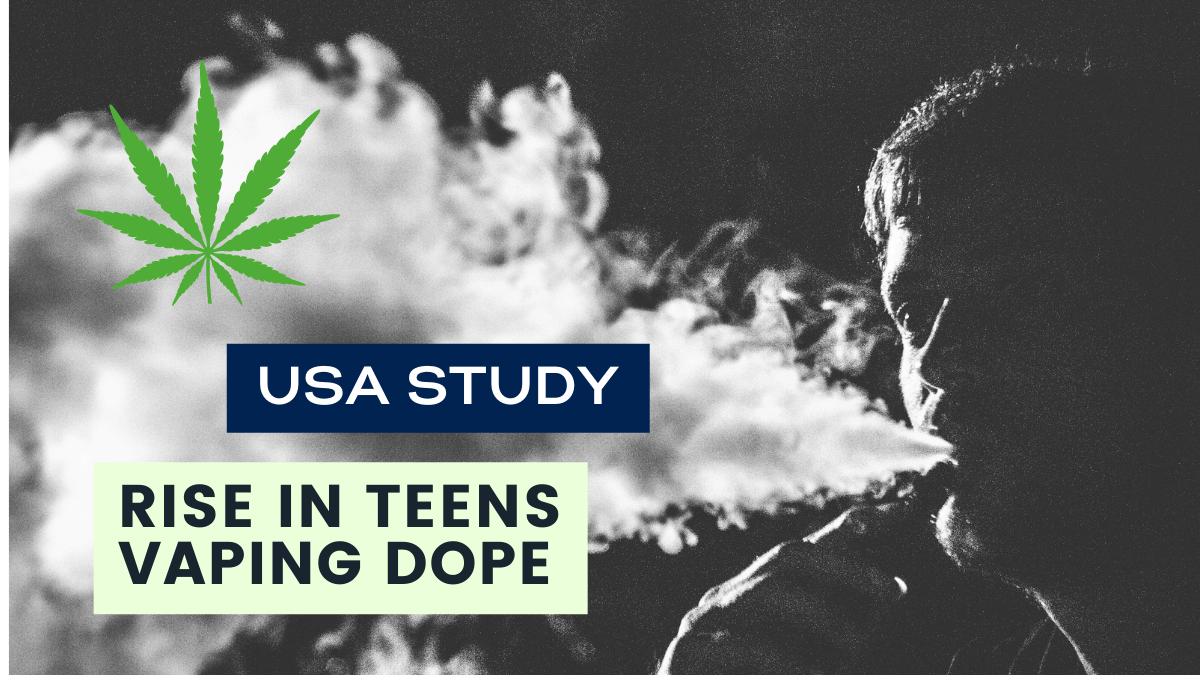
The evidence continues to mount – more teens are vaping high-potency cannabis that can permanently damage the teenage brain. A new study, published in JAMA (The Journal of the American Medical Association), analysed 17 studies conducted throughout Canada and the United States that involved nearly 200,000 adolescents.
Here is a summary of some of the findings:
- Marijuana vaping by school-aged youth doubled between 2013 and 2020 (with reported use within the last 30 days rising seven-fold during the same time period)
- Adolescents reported a preference for vaping cannabis extracts over dried herbs to get the buzz they desired from THC
- Modern ultra-potent strains of weed can contain over 15% THC, compared to the 4% or so available in the 1990s
- The use of cannabis products with high THC is easily achievable through vaping
- Increased risk of drug dependence, other substance use and many other health, social, and behavioural problems later in life
- Cannabis use during teenage years “can have permanent effects” such as poor coordination and damage to learning, memory, problem solving skills, and the ability to pay attention
- Use of weed by teens is linked to poor school performance and an increased likelihood of dropping out
- Teen use of marijuana has been linked to a range of mental health problems in teens such as depression or anxiety, even psychosis
- People who begin using marijuana before the age of 18 are four to seven times more likely to develop a marijuana use disorder than adults
- Vaping weed is associated with a dangerous, newly identified lung disease called EVALI, short for e-cigarette, or vaping, product use-associated lung injury
Parents need to be on the lookout for signs, symptoms and behaviours that could indicate their teens are using drugs. Some of the warning signs could be fatigue, irritability, moodiness, forgetfulness, sleeping much longer (or conversely, insomnia).
Further reading …
https://jamanetwork.com/journals/jamapediatrics/fullarticle/2785376
https://edition.cnn.com/2021/03/03/health/vaping-marijuana-lung-injury-study-wellness/index.html
